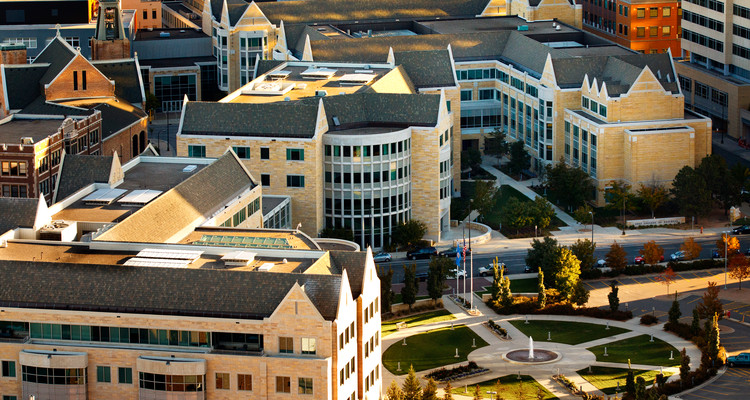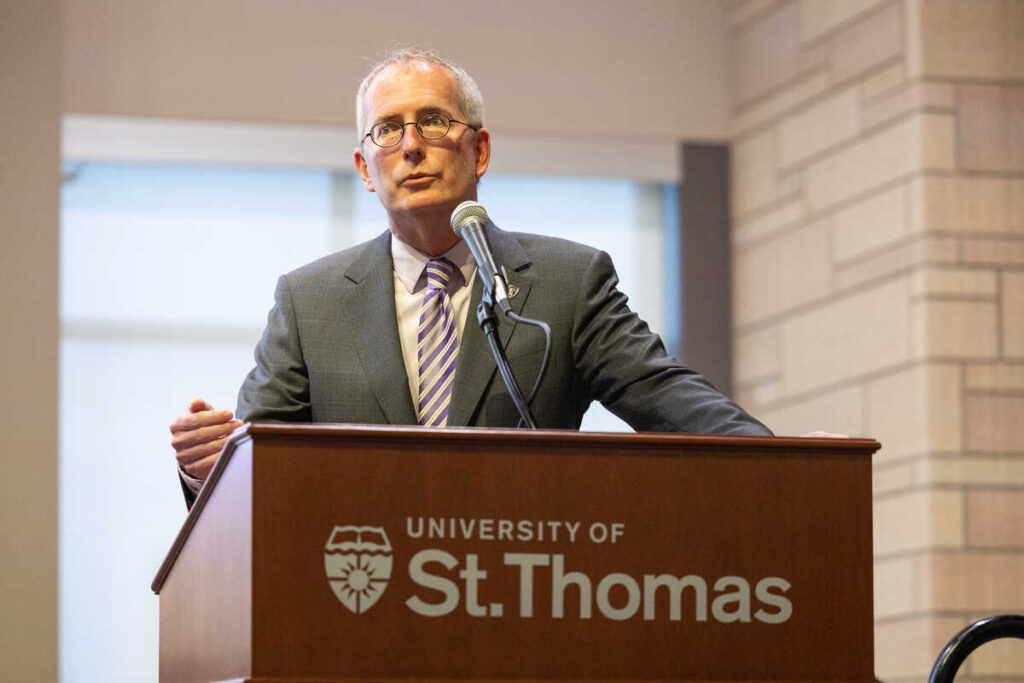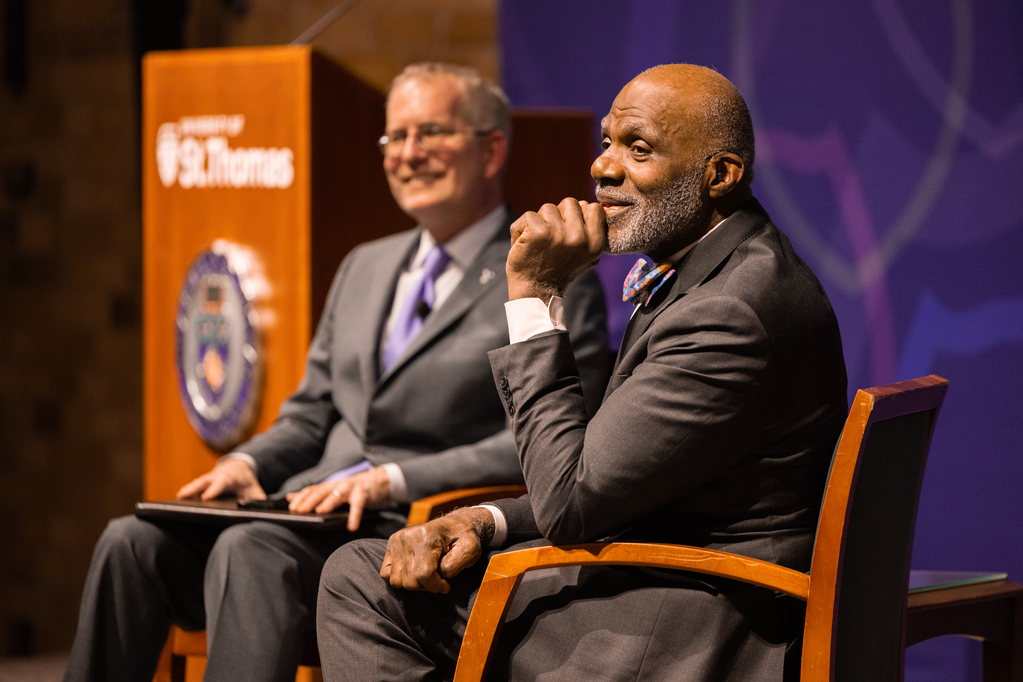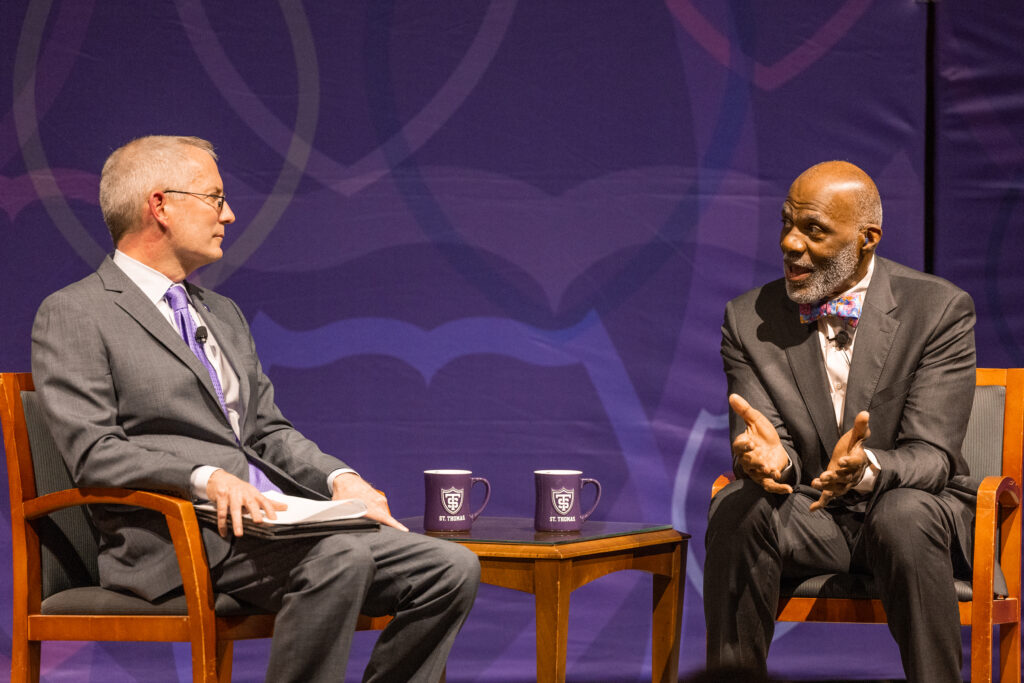Following a landmark $25 million gift from John M. Morrison and Susan Schmid Morrison, the University of St. Thomas today announced the naming of the Morrison Family College of Health. The news signifies the college’s next step in realizing its vision to educate health care providers and leaders to advance the physical, mental, social and spiritual well-being of individuals, families and communities.
This transformational naming gift marks the Naples, Florida, family’s latest in their legacy of impact at St. Thomas. Their support for the university has included co-chairing the Opening Doors campaign from 2007-12 that raised more than $500 million for St. Thomas.
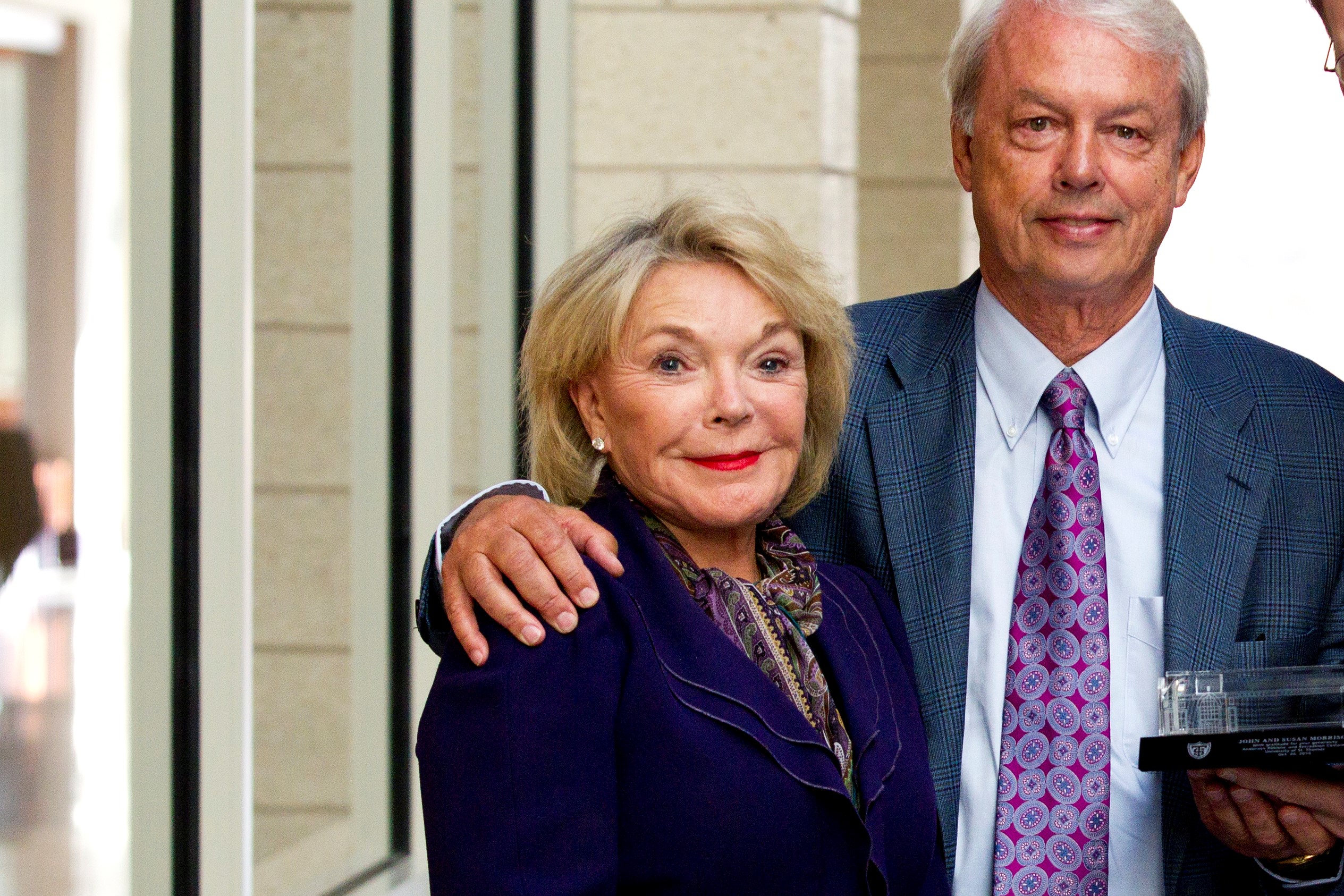
Susan and John Morrison's support of the Morrison Family College of Health builds on their legacy of transformational generosity at St. Thomas.
“I'm extraordinarily grateful to John and Sue and the Morrison family,” said Dr. Julie Sullivan, president, University of St. Thomas. “They share our excitement for this college’s potential to address systemic health care challenges in our communities. This approach is fully aligned with our mission to produce graduates who can advance the common good.”
The new Morrison Family College of Health will encompass a breadth of programs in both undergraduate and graduate nursing; social work; graduate psychology; and a future physician assistant program. The university also anticipates adding other allied health care education and training programs. Once its new nursing programs are launched and fully operational, the college expects a total combined enrollment of 1,250 undergraduate and graduate students – which would double the enrollment served in the college’s existing programs – with approximately 120 full- and part-time faculty and staff. This would make the college St. Thomas’ third largest after the College of Arts and Sciences and the Opus College of Business.
Under the leadership of Dr. MayKao Y. Hang – vice president, founding dean and Morrison Family Chair – the Morrison Family College of Health will contribute to building a college that integrates different disciplines to focus on whole-person care and keeping people well mentally, physically, spiritually and socially. The college also will take a unique approach to educating students by partnering with other programs across the university, including the business of health care program at the Opus College of Business and data analytics at the School of Engineering. This approach will allow its graduates to meet demands on health care professionals who are increasingly expected to possess business and analytics skills to succeed and thrive. Hang is former president and CEO of the St. Paul, Minnesota-based Amherst H. Wilder Foundation.
Name-bearing testimonies to John and Susan’s belief in St. Thomas can be seen across the St. Paul and Minneapolis campuses, including the Morrison Center for Entrepreneurship in the Opus College of Business; Morrison Residence Hall; and Morrison House, residence of the university’s president. A member of the university’s Board of Trustees since 1996, and former chair of the board, John Morrison has been influential in the development of the School of Law’s unique approach to legal education, helping to shape its model of mission-centered learning.
The launch and naming of the Morrison Family College of Health marks the latest monumental opportunity for St. Thomas, which has seen significant growth in recent years. That growth includes the launch of Dougherty Family College in 2017; a $50 million scholarship endowment gift from GHR Foundation in 2017, supporting an ongoing $200 million scholarship drive; completing major renovations to the Chapel of St. Thomas Aquinas in 2019; and ongoing construction of the Iversen Center for Faith and two new residence halls on the university’s St. Paul campus.
The university also is moving forward with plans for a new 160,000-square-foot academic complex for STEAM (science, technology, engineering, arts and math) on the university’s St. Paul campus. The complex will facilitate creative collaboration among students and faculty from different disciplines across the university, and even community organizations and businesses. The new complex also will meet capacity demands for engineering and nursing programs, while modernizing performance and arts display spaces.
